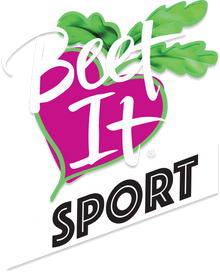
Beetroot Juice for BP: Natural Way to Lower It
Nearly half of American adults struggle with high blood pressure. This silent condition increases your risk for heart disease, stroke, and kidney problems. Many people now look for natural ways...
Nearly half of American adults struggle with high blood pressure. This silent condition increases your risk for heart disease, stroke, and kidney problems. Many people now look for natural ways to support their cardiovascular health alongside traditional treatments. Beetroot juice for BP management has gained attention as a research-backed option worth considering.
This deep purple drink contains high levels of dietary nitrates. Your body converts these compounds into nitric oxide, which helps relax blood vessels and improve circulation. Studies show regular beetroot juice consumption can produce measurable effects on blood pressure readings.
This guide explains how beetroot juice works in your body. You'll discover the right dosage, best timing, and simple ways to add it to your routine. We'll also cover safety tips and clear up common myths.
⚠️ Disclaimer: These statements have not been evaluated by the Food and Drug Administration. Our Beet It Sport Juice does not claim to lower blood pressure or treat any medical condition. This product is not intended to diagnose, treat, cure, or prevent any disease.
What Is High Blood Pressure?
Blood pressure measures the force of blood against your artery walls. The reading includes two numbers: systolic (top number) and diastolic (bottom number). Systolic pressure measures when your heart beats. Diastolic measures pressure between beats.
Doctors diagnose hypertension when readings consistently exceed 130/80 mmHg. Several factors contribute to elevated blood pressure. Stress, poor diet, lack of physical activity, and genetic predisposition all play roles.
Uncontrolled hypertension damages your cardiovascular system over time. It strains your heart, weakens blood vessels, and reduces organ function. The condition increases your risk for heart attacks, strokes, and kidney disease. According to the Centers for Disease Control, nearly 700,000 deaths in 2021 included hypertension as a primary or contributing cause.
Early intervention makes a significant difference. Diet and lifestyle modifications can help manage blood pressure before it reaches dangerous levels.
Nutritional Profile of Beetroot Juice
Beetroot juice delivers a concentrated dose of heart-healthy nutrients in every serving. One cup contains about 100 calories and provides compounds that directly support cardiovascular function.
Key nutrients in beetroot juice include:
- Dietary Nitrates: 250-400 mg per cup, the primary compound for blood pressure support
- Potassium: 518 mg per serving, helps regulate fluid balance and blood pressure
- Betalains: Antioxidants that fight oxidative stress and give beets their red color
- Vitamin C: Enhances iron absorption and supports vascular health
- Folate: Contributes to proper cell function and heart wellness
- Iron: Aids oxygen transport throughout your body
According to nutritional research on beets, these compounds work together as a functional food. The cardiovascular benefits extend beyond individual nutrients, making beetroot juice a practical addition to any heart-conscious diet.
How Beetroot Juice Supports Healthy Blood Pressure
The mechanism behind beetroot juice and blood pressure involves a fascinating biochemical process. When you consume beetroot juice, your body converts dietary nitrates into nitric oxide through a multi-step pathway.
Research published in Nutrients demonstrates how this conversion occurs. Bacteria in your mouth first reduce nitrates to nitrites. Your stomach and blood vessels then convert nitrites into nitric oxide.
Nitric oxide acts as a signaling molecule that triggers vasodilation. This process relaxes and widens your blood vessels, reducing resistance to blood flow. Lower resistance means your heart doesn't work as hard to pump blood throughout your body.
A clinical trial in Nutrition Journal found that beetroot juice consumption led to measurable reductions in blood pressure readings. Participants who drank 250 ml daily showed improvements in both systolic and diastolic measurements.
The enhanced nitric oxide production improves oxygen delivery to tissues. Better circulation supports heart efficiency and overall cardiovascular function. Studies on nitric oxide identify deficiency in this molecule as a primary driver of hypertension.
Endothelial function improves with regular beetroot consumption. Healthy endothelium responds better to circulatory demands, maintaining appropriate blood vessel tone throughout the day.
Timing and Dosage for Optimal Effects
Getting the right amount of beetroot juice at the right time maximizes its cardiovascular benefits. Research suggests 250-500 ml (about 8-17 ounces) daily provides optimal levels of dietary nitrates.
Best practices for beetroot juice consumption:
- Daily Amount: One to two cups of fresh juice for cardiovascular support
- Timing: Morning consumption supports function throughout active hours
- Peak Effects: Nitric oxide levels peak 2-3 hours after drinking
- Pre-Meal Strategy: Consuming 30 minutes before eating may enhance effects
- Split Dosing: Morning and evening portions maintain consistent nitric oxide levels
- Starting Out: Begin with smaller amounts and increase gradually over 1-2 weeks
Research from Penn State University examined timing effects in post-menopausal women, showing benefits with pre-meal consumption. Consistency matters more than perfection. Regular daily intake produces better results than occasional high doses. Learn more about optimal timing for nitric oxide support to maximize your results.
Practical Ways to Include Beetroot Juice in Your Routine
Adding beetroot juice to your daily routine doesn't have to be complicated. Multiple preparation methods allow you to choose what fits your lifestyle and taste preferences.
Simple ways to consume beetroot juice:
- Fresh Juice: Wash, peel, and juice raw beets at home for maximum nutrient retention
- Smoothie Blends: Mix with berries, banana, and spinach to mask earthy taste
- Citrus Pairing: Add orange or grapefruit juice for Vitamin C and better iron absorption
- Pre-Made Shots: Choose cold-pressed options without added sugars for convenience
- Ginger Addition: Blend with ginger for anti-inflammatory benefits and improved flavor
- Temperature Tip: Let refrigerated juice warm to room temperature to reduce digestive discomfort
Research from North Carolina University found enhanced blood flow during exercise after beetroot supplementation. Athletes often use beetroot juice to improve performance and endurance. Learn more about why athletes choose beetroot juice for sports performance and how you can apply these strategies to your fitness routine
Other Lifestyle Practices to Support Healthy BP
Beetroot juice works best when combined with other heart-healthy habits. A comprehensive approach delivers better results than relying on any single strategy.
Essential lifestyle practices for blood pressure support:
- Balanced Diet: Focus on fruits, vegetables, whole grains, and lean proteins
- Sodium Reduction: Keep intake below 2,300 mg daily
- Mediterranean Pattern: Emphasize plant foods, healthy fats, and moderate portions
- Regular Exercise: Aim for 150 minutes of moderate activity weekly (walking, swimming, cycling)
- Stress Management: Practice deep breathing, meditation, or yoga to lower cortisol
- Quality Sleep: Allow your body to regulate stress hormones effectively
- Healthy Weight: Even 5-10 pounds of weight loss can improve readings
Physical activity strengthens your heart and improves circulation. Understanding nitric oxide helps explain why exercise and beetroot juice complement each other so well.
Common Myths About Beetroot Juice and BP
Several misconceptions surround beetroot juice and blood pressure management. Understanding what it does and doesn't do helps set realistic expectations.
Common myths debunked:
- Myth: Beetroot juice cures hypertension - It supports healthy blood pressure but doesn't replace medical treatment for diagnosed conditions
- Myth: Any amount works - Specific dosages (250-500 ml daily) produce better results than random consumption
- Myth: Effects are immediate - While some changes occur within hours, sustained benefits require regular long-term use
- Myth: Everyone responds the same - Individual factors like gut bacteria affect nitrate conversion and results vary
- Myth: It replaces other interventions - Beetroot juice works best alongside exercise, stress management, and diet improvements
Clinical research shows beetroot compounds affect vascular function, but dietary support differs from medical intervention. People with severe hypertension need professional care. A holistic approach produces the most significant outcomes.
Support Your Circulation with BEET IT Circulation Nitrate 300
Refresh your routine with BEET IT Circulation Nitrate 300 – Organic Beet Juice Shots, made for those who value natural nutrition and active living. Each organic shot delivers 300mg of dietary nitrate from real beetroot, designed to support healthy circulation and everyday vitality.
Key Benefits:
- Contains Potassium, which contributes to the maintenance of normal blood pressure
- Naturally occurring Dietary Nitrate from beetroot converts to Nitric Oxide in the body — a vasodilator associated with improved circulation
- Supports overall wellness and active lifestyle balance
👉 Shop Now
FAQs About Beetroot Juice for BP


